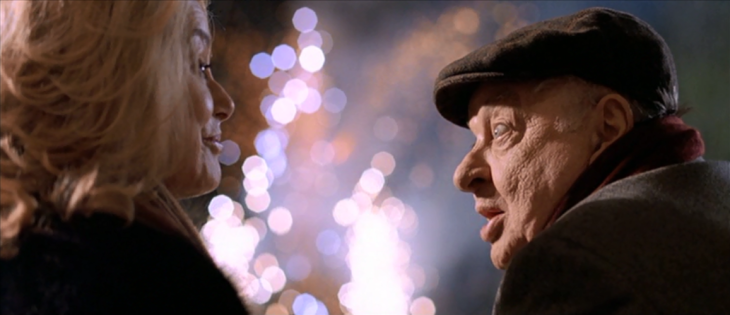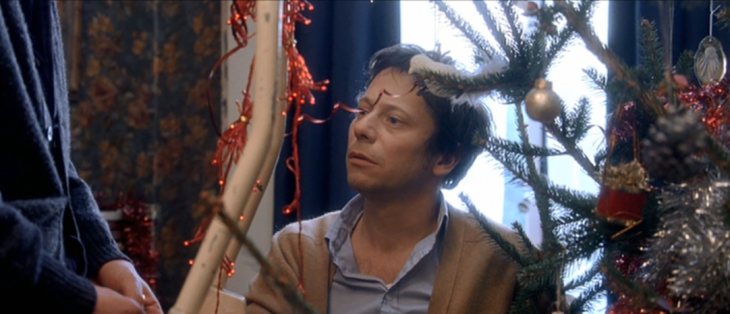Welcome to The Twelve Ways of Christmas, where we unpack weird and overlooked holiday films. And let’s face it, the blog roll could use the attention.
With little rhyme or reason, check in from now until The Day That Must Not Be Named for a new entry.
For a film as stuffy and melancholy as A Christmas Tale, it’s mighty generous with its craft. Arnaud Desplechin’s 2008 French-language dramedy juggles its family’s characters as much as it juggles storytelling devices. Irises condense frames during moments of emotional rawness. Slow zooms and medium shots of body parts isolate or draw our focus in. Characters speak their feelings aloud, directly to the camera like a lyrical Real World confessional or in omniscient voiceover. Such a hodgepodge of techniques can’t help but feel overstuffed but in examining and then re-examining the Vuillard family over the holidays, Desplauchin has created a wealth of intellectual riches.
A Christmas Tale‘s central story begins when the Vuillard family matriarch Junon (Catherine Deneuve) reveals she has leukemia. While a sure death sentence, a bone marrow transplant from her estranged son Henri (Mathieu Amalric) would prolong her life. The problem is that Henri has been the black sheep of the family ever since his sister Elizabeth (Anne Consigny) saved him from bankruptcy years earlier on the condition that he never return again. Henri’s homecoming to the Vuillard household, around the holidays no less, reawakens a long-standing bitterness between him and his sister as they enter into a spiteful tug-of-war.

Henri bone marrow transplant, and what is functionally the gift of life itself, should be accepted with grace and humility but Elizabeth and Henri find all manner of ways to spoil the goodwill. At first, Henri seems more than eager, especially if it will get him back into the family’s good graces, however his on-again off-again war with Elizabeth, the origin of which is often speculated but never mentioned, has Henri flip-flopping on his good deed. He loves his mother. He loves her not. An alcoholic and an eccentric, Amalric’s Henri is the film’s wildcard, a shady element and a far cry from the coolness of Deneuve and Jean-Paul Roussillon’s patriarch, but when he returns home and the infighting resumes, they don’t seem all that estranged anymore.
Even if his family isn’t, Desplauchin is generous with his ideas, using well-read characters to muse on artistry and literature, loyalty and truth all of which are presented in devil-may-care leisure. There’s a supreme melancholy covering this cooler breed of The Royal Tenenbaums. Cinematographer Eric Gautier uses the big open windows of the Vuillards’ French home to bathe proceedings in a neutral cool. Even splashes of crimson from a family Christmas play or decorations on the altar for midnight mass — where the mise-en-scène is most vibrant — are subdued. What should be gorgeous and beautiful becomes sullen and downplayed. When his dysfunctional family isn’t providing the gifts, Desplauchin is. You just might want to hold onto that receipt.
Way #1: Batman Returns
Way #2: Black Nativity
Way #3: The Gingerdead Man
Way #4: The Ice Harvest
Way #5: Christmas in July
Way #6: Fred Claus
Way #7: Mon oncle Antoine
Way #8: Christmas in Connecticut
Way #9: Reindeer Games
Way #10: Silent Night, Deadly Night
Way #11: Ernest Saves Christmas

